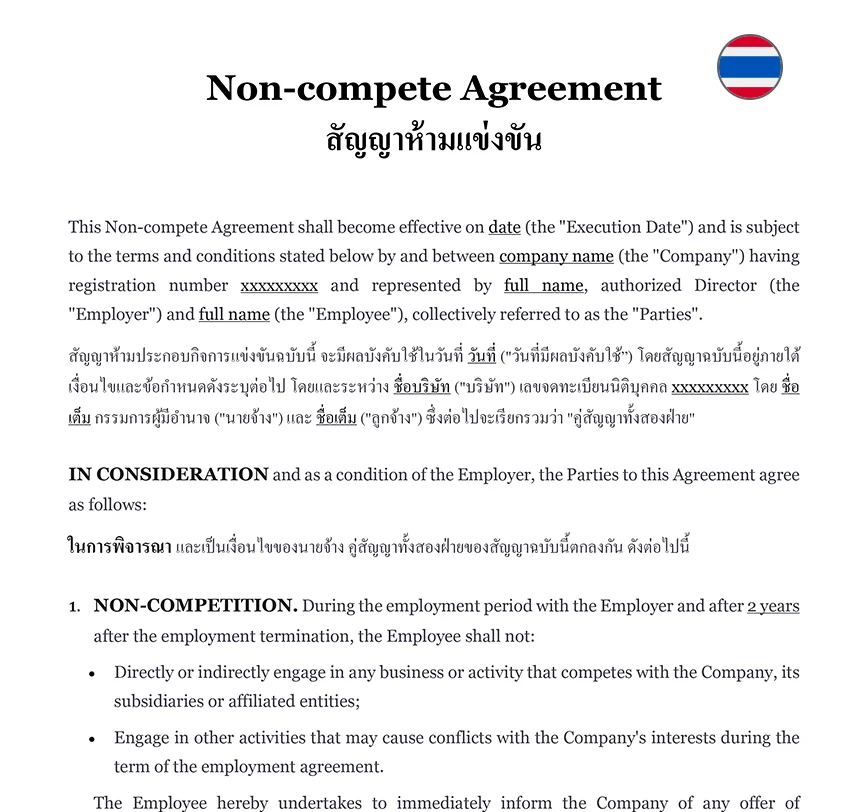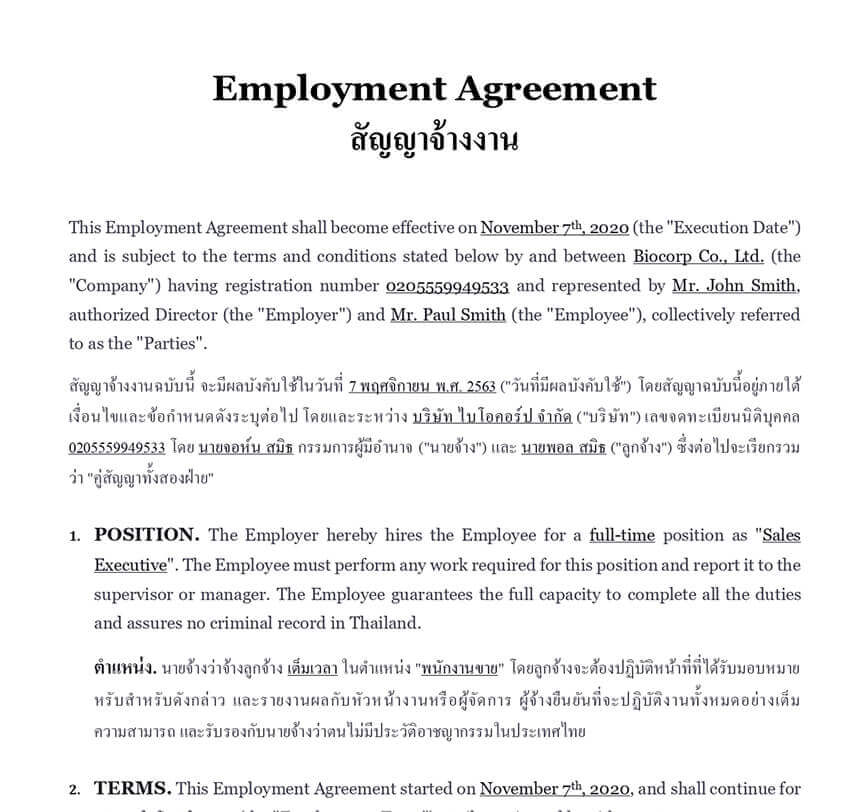What is the non-concurrence clause?
The non-concurrence clause is a clause inserted in the employment contract. It aims to limit the freedom of an employee to perform, equivalent functions with a competitor or on his account after the termination of his contract. Indeed, many employers devote significant resources to training their employees and acquiring professional experience that they do not want to see exploited by competitors. Therefore, to ensure that knowledge gained during employment remains confidential, employers use non-concurrence clauses as a mechanism to protect their interests and prevent former employees from disclosing proprietary information.
For example, an employer may include a non-concurrence clause in an employee’s contract that will be effective when the employee leaves his or her job. This clause may contain a prohibition on working for a competitor or setting up a business in a specific geographical area for a limited period.
What laws apply to the non-concurrence clause?
In Thailand, non-compete provisions are governed primarily by Section 14/1 of the Labor Protection Act and the Unfair Contract Terms Act.
Firstly, the Labor Protection Act provides that :
“ for an employment contract between an employer and an employee, work rules, regulations or orders of an employer which provides that the employer has an unfair advantage over the employees, the court shall have the power to order that the employment contract, work rules, regulations or orders shall apply only to the extent that they are fair and appropriate to the circumstances.”
Secondly, the Unfair Contract Terms Act states that
“contract terms that are not void but that place a more significant burden on the person whose rights or freedoms have been restricted than a reasonable person could have foreseen under normal circumstances are enforceable only to the extent that they are fair and reasonable in the circumstances.”
Therefore, a non-concurrence clause is acceptable and enforceable under Thai law if it is not contrary to public policy and morality. The non-concurrence clause must also be fair and reasonable. Considerations must be based on the period and geographical area of restriction, the employee’s ability, and capacity to perform his or her job and any other parties’ legitimate interests.
Finally, it is important to note that the non-concurrence clause must not in any way have the effect of eliminating all employment opportunities for the employee.
Who is subject to the non-concurrence clause?
The non-concurrence clause applies to the employee after his or her contract has ended. Therefore, the employee subject to this clause while the employer benefits from it.
What are the criteria for the validity of the non-competition clause?
For the non-concurrence clause to be valid and acceptable, it must take into account several criteria:
| ➤ The non-concurrence clause must be signed by both the employer and the employee |
| ➤ The non-concurrence clause is only applicable if it protects the interests of the company |
| ➤ The non-concurrence clause may not prevent the employee from finding a new job |
| ➤ The non-concurrence clause is limited in time |
| ➤ The non-concurrence clause has geographical limits |
| ➤ A financial compensation must accompany the non-concurrence clause |













